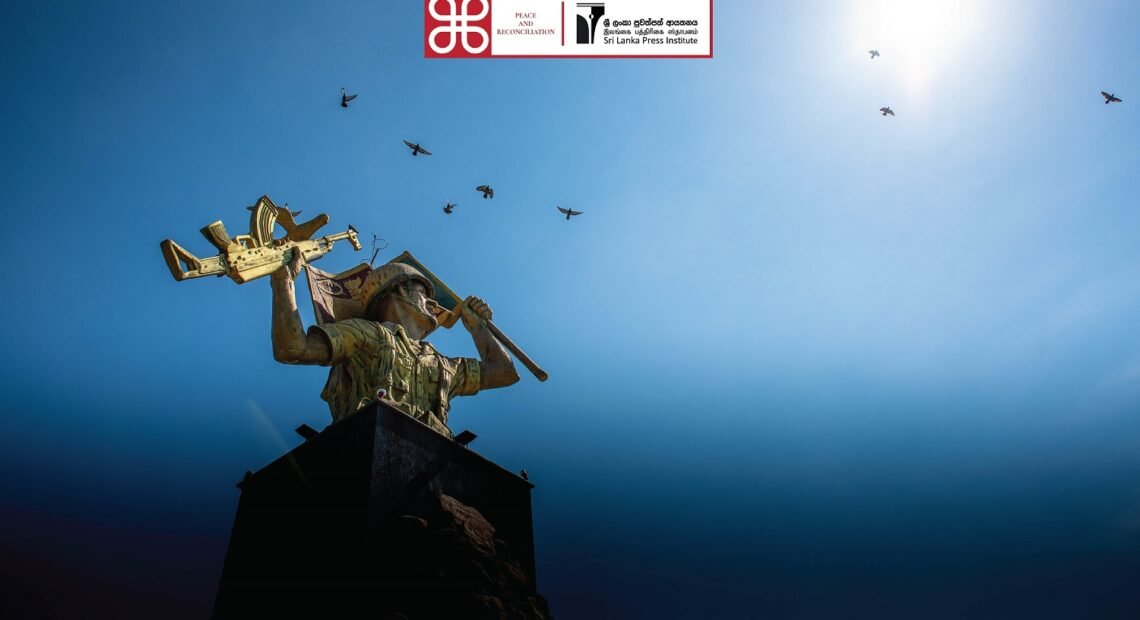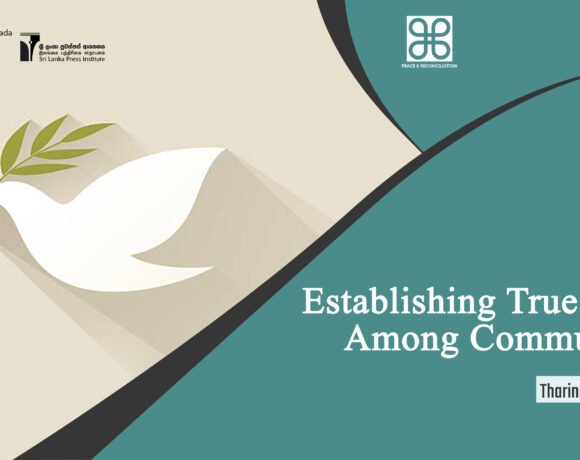
The Heartless Body of War and Deserted Arugam Bay
Kapilakumara Kalinga
Memories of wartime:
Arugam Bay was not depopulated this much even during the war, but the coronavirus pandemic has been more brutal to Arugam Bay. Anyone who visits Arugambay feels sorry now.
I have been to Arugam Bay before, with my foreign and local friends, family, and even by myself for work and leisure. I cannot exactly remember how many times I have been to Arugam Bay along with this visit.
I was thrilled to get ready whenever I got a chance to visit Arugam Bay. As someone who has visited every single tourism site in Sri Lanka, I had a particular interest in this place. If someone asked me why I would not have a straight answer to that. (But this article probably provides a proper answer.)
Arugam Bay, also known as Arugam Kudah is an area with a small population in the Ampara district located in the Eastern Province of Sri Lanka. The majority of the population in Arugam Bay are Muslims. Arugam Bay, a semi-circular stretch of beach with high waves, is a world-famous destination for windsurfing and surfing. Surf enthusiasts from all over the world visit Arugam Bay for surfing. You can see surfboard renting shops everywhere in the city, which is one of the highest incomes of the community. Other than that, Arugam Bay beach and the city is full of hotels, guest houses, and boutique restaurants of different levels. Especially in July and August, Arugam Bay is full of tourists because that time is considered ideal for surfing due to high waves and perfect weather.
Muslims owned the trade authority in the city and, Tamil and Sinhala communities who lived in villages quite far from the city mainly depended on the fishing industry. Some of them are engaged in paddy farming and traditional rain-fed farm cultivation.
Arugam Bay was also important to the local Sinhala-Buddhists because of the “Muhudu Maha Vihara“ temple situated on one end of the beach. It is considered the place where the floating ship with “Vihara Maha Devi”, the mother of king “Dutugamunu”, landed. Sinhala Buddhist pilgrims frequently visited this place, but that was stopped due to the war. It started again later, and the temple was also repaired from time to time.
When our van was stopped at a nearby place to the temple, an old Muslim businessman called Haleem I came to know in Arugam Bay came to my memory. I never forgot to visit him whenever I came to Arugam Bay. Haleem was a managed somewhere between sixty and seventy, but his harsh lifestyle had made him look older.
Haleem’s shop was situated at the end of the bazaar that extended towards the beach. He used to live a little further from his shop. Haleem’s shop had surfboards leaned upright in front of the shop, which was a common feature at the bazaar. Tourists borrowed them on an hourly or daily basis. He also had cool drinks, biscuits, fruits, and such for tourists. In addition to that, he also sold tea, coffee, and short eats. Due to this, neighbours and outsiders also used to come to his shop.
His only son Asad was fifteen years old when his wife died. Even though his relatives forced him to marry again, he decided to take care of his son all by himself. Even though in a Muslim accent, they both could speak Sinhala well. Haleem spoke English as well. Asad could speak not only English but also a little bit of German and Italian. It was highly beneficial in the tourist industry.
When I came to know these two, the shadows of war had already spread in the Northern and Eastern provinces of Sri Lanka. The Arugam Bay community as well felt the results of the gradual decrease of tourists. But things did not come to a complete stop due to occasional groups of tourists who came for surfing. They mainly were tourists who had been to Arugam Bay before and were familiar with the area.
Asad started selling clothes as the income from the shop was low. He sold clothes obtained from a friend in Batticaloa door-to-door in villages. He sometimes did not come home for a couple of days. Haleem was worried about his son. He felt so lonely when his son was not at home. He was afraid, especially when his son went to the Tamil areas for business. War news increased his anxiety.
In the earlier days of the war, the Muslim community was not directly affected by the LTTE Some young Muslims were involved in Tamil armed organizations before the LTTE but the LTTE gradually started suspecting the Muslim community. They were against having Muslim settlements in the ‘Tamil motherland’. They attacked Muslim villages sometimes. The culmination of the anti-Muslim sentiments was the LTTE ordering Muslims to leave the Jaffna peninsula within twenty-four hours.
Haleem did not like the war, and he needed peace to live freely as a businessman. He did not mind the war until it became an obstacle to his existence.
There is a saying that language is the spine of an ethnicity. But in Sri Lanka, the main language of the Muslim community is Tamil. Children of the ordinary Muslim community get their education in Sinhala and Tamil mediums, but the well-to-do Muslim community educates their children in the English medium.
There was a bridge made between the Tamil and Muslim ethnicities through the Tamil language. But it was broken after the formation of the LTTE. They did not welcome Muslims as their brethren just because they spoke Tamil. Due to that, Muslims felt that even though they spoke Tamil they were a minority dejected even by the Tamil community.
“Tamils fight for a separate country for them. What do you think about that, Haleem?” I asked him one day.
“They are doing that because they do not trust the Sinhala government.” He answered without even thinking.
Haleem was not a very educated man, but he was no fool either. But I don’t think that answer was his free-thinking.
“What does your son think about Eelam?” I asked.
“He likes it. Young lads, no?”
“But Haleem an Eelam is a country of Tamils. Muslims don’t belong to it.”
Then Haleem looked away as he did not have an answer.
Even though Tamils and Muslims were two ethnicities that spoke the same language, another major factor stopped them from being united. That was religion. While Tamils were mainly Hindus, there were Catholics and Buddhists among them too. But there were only Islam people in the Tamil-speaking Muslim community. Muslims never went to Hindu Kovils, and Tamils never went to Mosques either. That is an instance where the love of language falls back in the face of religion.
About two years later, I was informed that Haleem had left Arugam Bay through one of his relatives who got the shop from him. He doesn’t know where Haleem was, but he assumes that he might be in Puttalam, Mannar or Beruwala. He might not even be alive right now as he had been suffering from heart disease lately.
Haleem’s life turned into a tragedy when his son disappeared.
Asad was married to a young Tamil girl whom he met during his trade tours. Haleem was completely against their marriage. Asad did not come to Arugam Bay with his wife either. He came back sometime later after the marriage, after finding out that his father was ill.
The Arugam Bay community was shocked that the Sri Lankan Army arrested a few young Muslims from a nearby village on suspicion of providing fuel to the Sea Tigers. Some doubted that Asad was among them, but Haleem went to the Army camp and found that it was not true.
However, after that incident, Asad never came back to Arugam Bay. Haleem found that his wife and the family had also fled from the area. Only Allah knows what happened.
In the end, he fell sick, and his business went down. He distanced himself from society. He was like a missing person in the war. I will let you decide whether the war is responsible for this helpless man’s fate or not.
Postscript
There are two ideas of war in my mind.
- Even though war has a body, it has no heart.
- War equally treats the one who is looking at him and the one who is looking away.
- A saying in Russian author Alexei Tolstoy’s famous short story The Russian Character, “In a war, people turn really good due to constantly being on the doorstep of death.”
As far as I know, there was no fair reason for the Tamil rebels to kill Haleem or Asad. Haleem was someone who looked away from the war, and Asad might have faced it at least indirectly.
Either way, in my opinion, I prefer to think that the father and son duo, whom I consider to be good people, will meet me somewhere living peacefully and happily one day.
ශරීරයක් ඇති හදවතක් නැති යුද්ධය – ආරුගම්බේ පාළුවට ගොසිනි
இதயமற்ற யுத்தமும் வெறிச்சோடிய அறுகம் குடாவும்








